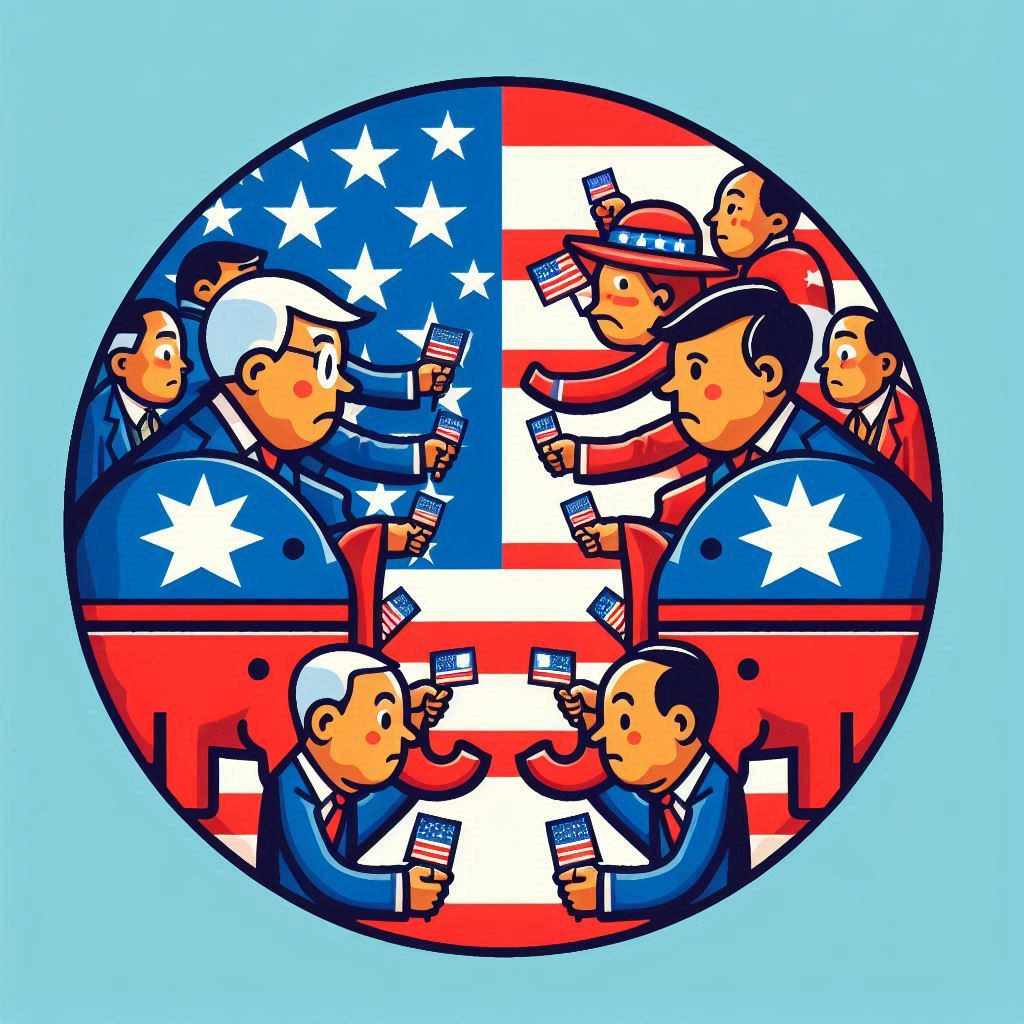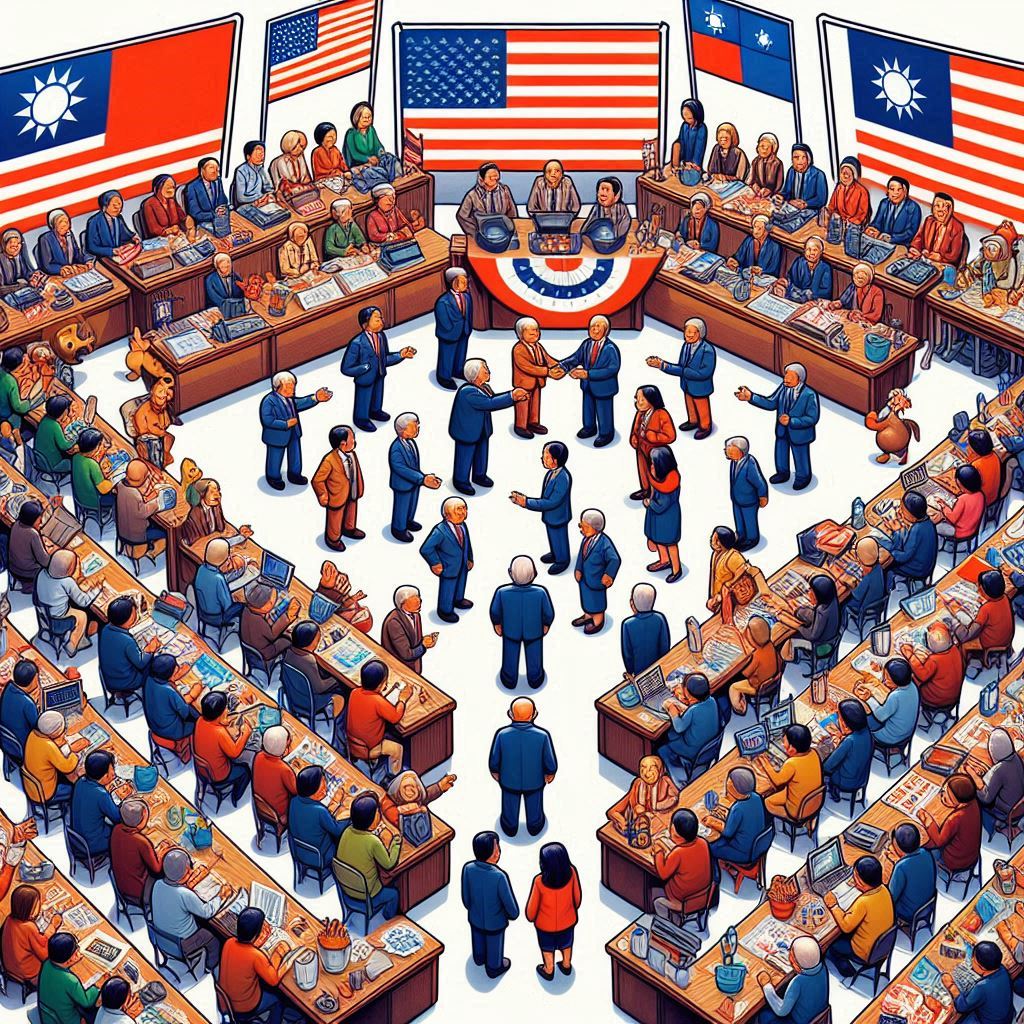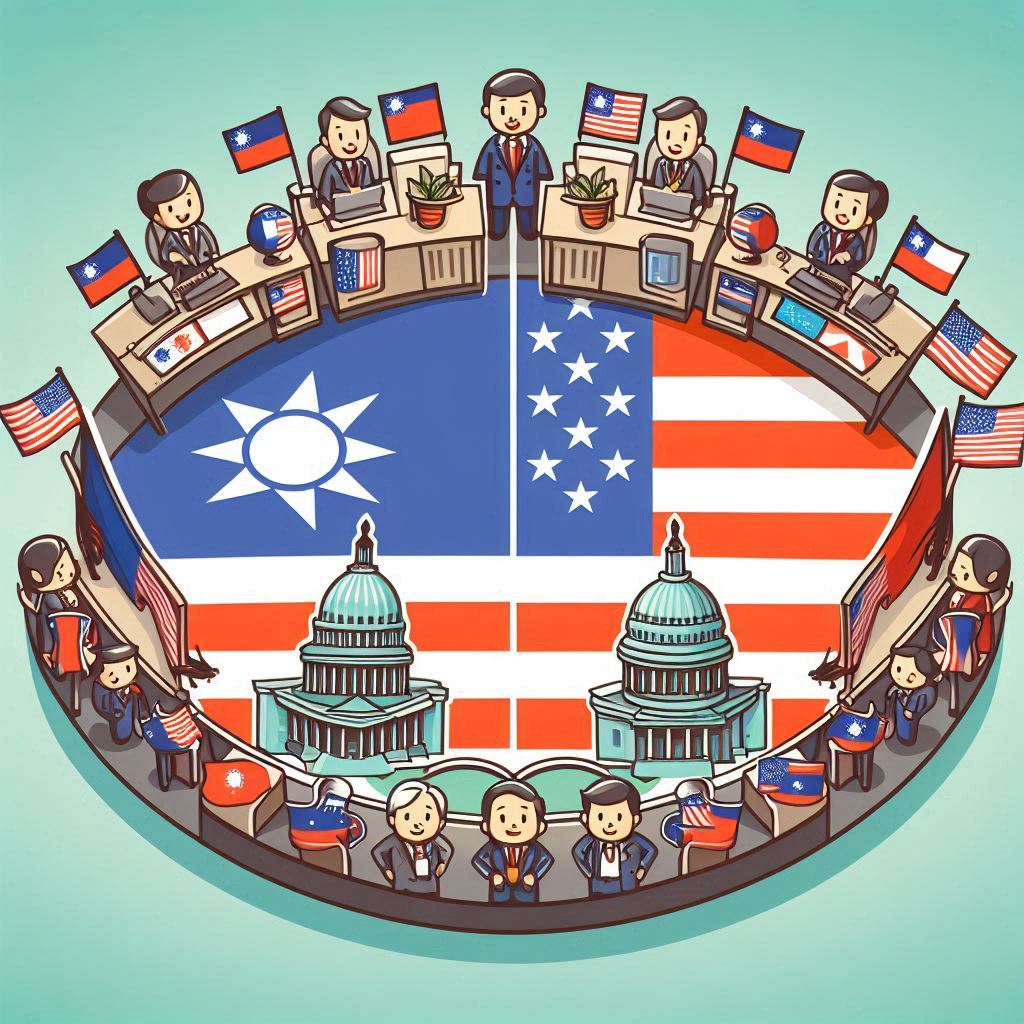民眾黨主席柯文哲疑似涉貪,台灣要回歸到兩黨政治?
台灣民眾黨主席柯文哲最近因政治獻金帳目不清以及疑似挪用款項來購置房產的指控而陷入風波。他的妻子也被爆料參觀價值1.2億元的豪宅,這些事件引發廣泛的關注與爭議。許多政治評論員因此認為,民眾黨可能會因此陷入困境,甚至導致該黨最終徹底泡沫化,台灣將重新回歸兩黨政治的格局。類似的情況在美國也曾發生,第三方候選人或政黨的存活與發展面臨巨大困難。
第三方或獨立候選人在台灣與美國這些政治結構相對穩固的國家中,難以生存的原因有多方面。首先,現有的兩大政黨擁有牢固的資源基礎和選民支持,使得第三方難以有效競爭。這些傳統大黨不僅擁有強大的財政資源、媒體曝光率和政治人脈,還在選民心中有著深厚的歷史認同感,這讓第三方在資源分配和曝光度上處於劣勢。
其次,選舉制度也往往對第三方不利。在台灣和美國,選舉制度多以「單一選區相對多數制」(也稱為「贏者全拿制」)為主,這意味著選區中的最高得票者將贏得全部席次,而其他候選人則無法獲得任何席次。這使得選民在投票時更傾向於支持有勝算的兩大黨,而非第三方候選人,以免浪費選票。這種制度排擠第三方的生存空間,使得他們難以在國會中取得席位或有效影響政策。
再者,選民心理也阻礙第三方的發展。很多選民對其抱有懷疑態度,認為其缺乏穩定性、政治經驗或無法長期存在,往往被視為「暫時的替代品」,而非能夠帶來實際改變的力量。此外,第三方政黨的政策立場可能更邊緣化,無法吸引到廣泛的支持基礎,這也使其難以長期維持選民支持。
然而,第三個政黨對民眾也有一些優點和缺點。優點在於,第三方政黨的存在有助於打破兩黨壟斷的局面,提供更多的選擇,特別是當兩大黨的政策無法滿足部分選民需求時,第三方政黨可以成為改革力量,提出創新和不同的政策方案。第三方政黨也往往能促使兩大黨更加關注選民需求,避免選票流失。但缺點是,小政黨經常面臨資源不足和政治影響力有限的問題,即使成功進入議會,也可能無法在決策過程中發揮實質性作用。此外,若第三方過於分散選票,反而可能使選民的政治影響力變弱,無法形成足夠的政治壓力來推動變革。在政黨不穩定的情況下,選民對其信任度也可能降低,進一步加劇生存困難。
總之,第三方在台灣和美國的政治生態中都面臨嚴峻的挑戰,但其存在依然對民主政治具有一定的價值,為選民提供更多的選擇與可能性,儘管這些選擇在實際運作中仍面臨不少局限。
Taiwan People's Party Chairman Ko Wen-je has recently been embroiled in controversy due to accusations of unclear political donation accounts and alleged misuse of funds to purchase real estate. His wife was also reported to have visited a luxury mansion valued at NT$120 million. These incidents have sparked widespread attention and debate. Many political commentators believe that the Taiwan People's Party could face significant difficulties because of this, possibly leading to its eventual collapse, which would result in Taiwan returning to a two-party political system. Similar situations have occurred in the United States, where third-party candidates or political parties struggle to survive and develop.
There are multiple reasons why third parties or independent candidates find it difficult to thrive in countries with relatively stable political structures, such as Taiwan and the United States. First, the two major existing parties possess strong resource bases and voter support, making it challenging for third parties to compete effectively. These traditional major parties not only have significant financial resources, media exposure, and political connections, but they also hold deep historical recognition among voters. This places third parties at a disadvantage in terms of resource allocation and visibility.
Secondly, the electoral system often works against third parties. In Taiwan and the U.S., the electoral system is primarily based on a "first-past-the-post" system, also known as "winner-takes-all." This means that the candidate with the most votes in a district wins all the seats, while other candidates receive none. As a result, voters are more inclined to support the two major parties with a better chance of winning, rather than casting their votes for third-party candidates, in order to avoid wasting their votes. This system squeezes third parties out of the political arena, making it difficult for them to gain seats in the legislature or have a meaningful impact on policy.
Additionally, voter psychology also hinders the development of third parties. Many voters harbor doubts about third parties, viewing them as lacking stability, political experience, or the ability to endure long-term. They are often seen as "temporary alternatives" rather than forces capable of bringing about real change. Moreover, third-party policies tend to be more marginal and may not attract a broad base of support, making it difficult for them to maintain long-term voter backing.
However, third parties offer both advantages and disadvantages to the public. One of the key advantages is that third parties can help break the duopoly of the two major parties, providing more options for voters. This is especially important when the policies of the two dominant parties fail to meet the needs of certain voters. In such cases, third parties can serve as reformist forces, offering innovative and alternative policy solutions. Additionally, third parties often push the two major parties to pay more attention to voter needs, as they seek to avoid losing votes.
On the downside, smaller parties frequently face resource shortages and limited political influence. Even if they succeed in entering the legislature, they may struggle to exert significant influence in the decision-making process. Moreover, if third parties divide the vote too much, it could weaken the political power of voters, reducing their ability to create sufficient pressure for change. In situations where third parties are unstable, voter trust may diminish, further exacerbating their survival challenges.
In summary, third parties face significant challenges in the political landscapes of both Taiwan and the United States. Nonetheless, their presence still holds value in a democratic system, offering voters more choices and possibilities, although these options face substantial limitations in practical application.



照片:DALLE3
- 1
- 2
- 3
- 4
